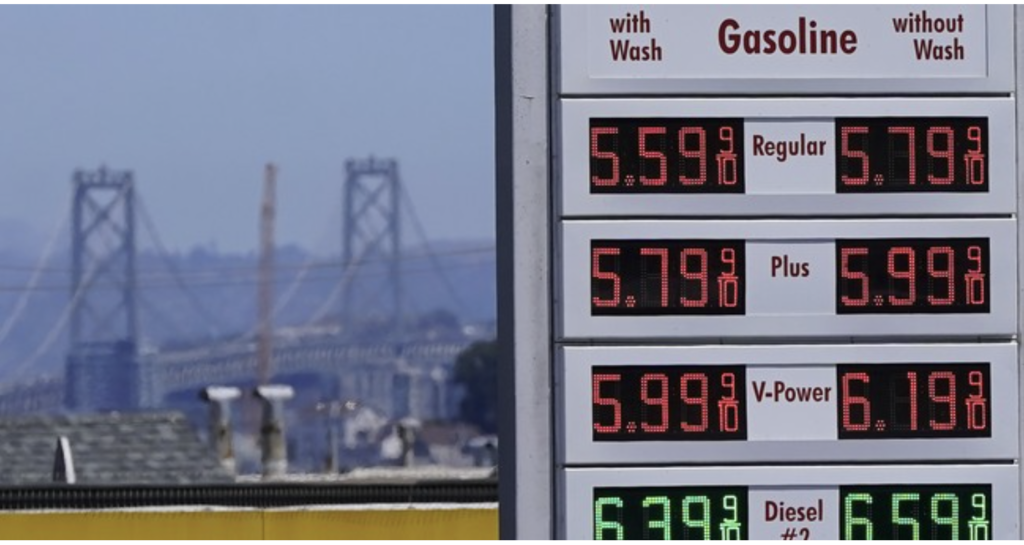
Americans are experiencing an energy crisis with gasoline and diesel fuel at historically high prices. President Biden has been releasing a million barrels a day from the nation’s strategic oil reserve and it is now at its lowest level in decades. Likewise, it is unsettling to watch the President travel abroad begging for oil rich nations to produce more oil. Another typically hot summer is driving up energy demands for electricity and adding to the feeling that this energy crisis is real and isn’t merely a function of high gas prices.
All of this is happening while the Administration is arguing that we should be driving electric vehicles. But as even Elon Musk, the number one producer of electric vehicles in the U.S. has pointed out, there simply isn’t enough electricity nor can our electrical grid handle the demand of millions of electric vehicles plugged in every night to recharge.
One of the problems with complex issues is that policymakers often suggest absurdly harmful solutions that won’t work in real life. America’s current energy woes cannot actually be solved by a sudden switch to electric vehicles. Nor can the problem be solved by depleting the strategic oil reserve. But oddly enough these are not the most absurd policy suggestions. Some of the proposed solutions are even more misguided.
For example, some have suggested that we repeal the Jones Act, which requires ships operating within the United States between two or more U.S. ports to be American ships with American crews. They seem to think that allowing foreign ships with unvetted and unknown foreign crews to sail up and down America’s 25,000 miles of inland water ways will somehow solve our energy problems, a policy prescription that borders on the insane or at least the inane.
When pressed, they use the energy crisis and argue that liquefied natural gas (LNG) could be shipped more cheaply in the United States via foreign vessels as the American fleet isn’t currently prepared to ship massive quantities of LNG (which requires a specialized fleet). But here’s the problem with this policy prescription — pipelines are by far the cheapest and safest way to transport natural gas and petroleum products across the United States. So, if you’re worried about the expense of transporting LNG, you should support the construction of more pipelines, not the repeal of the Jones Act.
If you repeal the Jones Act, all you would gain a relatively expensive way to transport LNG that would also pose more risks and dangers. In exchange, you would also lose all the benefits of the Jones Act.
The Jones Act is a critical part of our military readiness and ability to supply our military. Former Vice Chairman of the Joint Chiefs of Staff, General Paul Selva said, “I am an ardent supporter of the Jones Act. [The Act] supports a viable ship building industry, cuts cost and produces 2,500 qualified mariners. Why would we tamper with that?” Admiral Paul Zunkunft also said, “You take Jones Act away, the first thing to go is these shipyards and then the mariners…. If we don’t have a U.S. fleet or U.S. shipyard to constitute that fleet how do we prevail?”
But the Jones Act isn’t just important to our military strength, it actually helps border security and homeland security as well. The law allows the primary focus of our security efforts to be on the outer perimeter of our country and the American ships and American crews who are both vetted and trained become the eyes and ears on America’s inland water ways. The taxpayer doesn’t have to pay them or pay for their boat to do that. They do all of that while they’re doing their normal job.
As Michael Herbert, former Chief of the Customs & Border Protection’s Jones Act Division of Enforcement said, “We use the Jones Act as a virtual wall. Without the Jones Act in place, our inland waterways would be inundated with foreign flagged vessels.”
The truth is — if we were to repeal the Jones Act, any foreign ship, with an unknown and unvetted crew, carrying unknown cargo, equipment, and even weapons, could sail up the Mississippi and along America’s vast inland water ways, gaining access to America’s heartland.
Once you know the facts, it is clear that those suggesting we repeal the Jones Act — whether they realize it or not — are really suggesting that we allow Chinese, Russian, North Korean, and Iranian ships and crews, which would likely be carrying spies and covert operatives, to deploy inside America’s heartland with high-tech listening devices and tools of sabotage. They are also suggesting that America’s military capacity be significantly weakened and undermined.
Given that pipelines are both cheaper and safer, and don’t undermine our national security, or bring foreign powers into our heartland, they would be a far better solution to transporting LNG and petroleum products. It is time to put an end to the senseless talk of repealing the Jones Act.